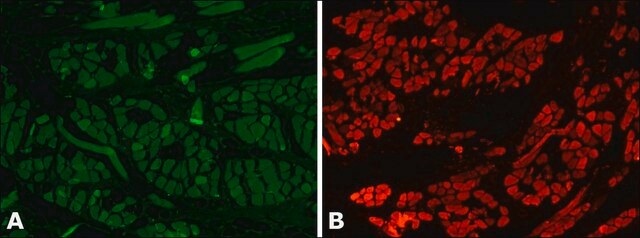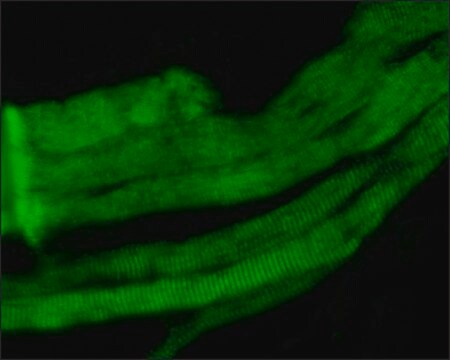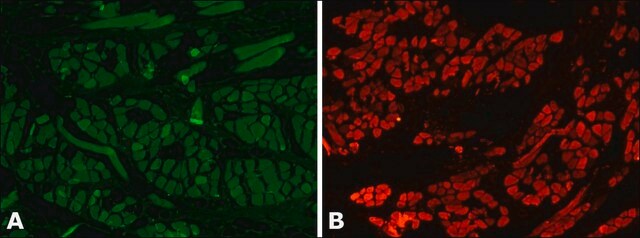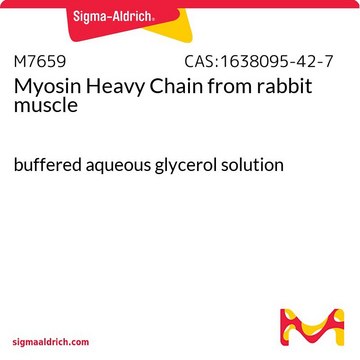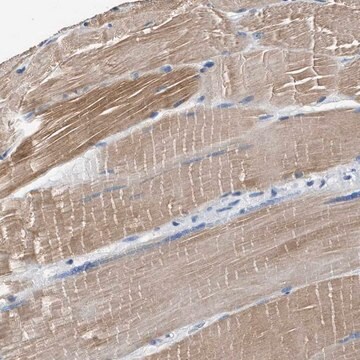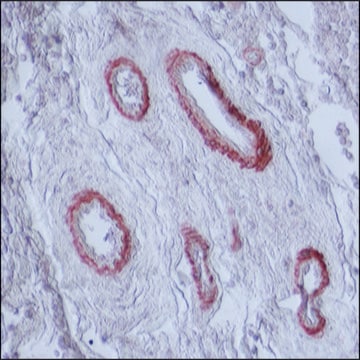A4335
Monoclonal Anti-Myosin (Skeletal, Fast)−Alkaline Phosphatase antibody produced in mouse
clone MY-32, purified from hybridoma cell culture
Synonyme(s) :
Monoclonal Anti-Myosin (Skeletal, Fast) antibody produced in mouse
About This Item
Produits recommandés
Source biologique
mouse
Conjugué
alkaline phosphatase conjugate
Forme d'anticorps
purified immunoglobulin
Type de produit anticorps
primary antibodies
Clone
MY-32, monoclonal
Forme
buffered aqueous glycerol solution
Espèces réactives
rat, chicken, rabbit, mouse, human, bovine, guinea pig, feline
Technique(s)
direct immunofluorescence: 1:150 using formalin-fixed, paraffin-embedded human or animal skeletal muscle sections
Isotype
IgG1
Numéro d'accès UniProt
Conditions d'expédition
wet ice
Température de stockage
2-8°C
Modification post-traductionnelle de la cible
unmodified
Informations sur le gène
human ... MYH1(4619) , MYH2(4620)
mouse ... Myh1(17879) , Myh2(17882)
rat ... Myh1(287408) , Myh2(691644)
Vous recherchez des produits similaires ? Visite Guide de comparaison des produits
Description générale
Spécificité
Immunogène
Application
Actions biochimiques/physiologiques
Forme physique
Clause de non-responsabilité
Vous ne trouvez pas le bon produit ?
Essayez notre Outil de sélection de produits.
Produit(s) apparenté(s)
Code de la classe de stockage
10 - Combustible liquids
Classe de danger pour l'eau (WGK)
WGK 2
Faites votre choix parmi les versions les plus récentes :
Déjà en possession de ce produit ?
Retrouvez la documentation relative aux produits que vous avez récemment achetés dans la Bibliothèque de documents.
Les clients ont également consulté
Notre équipe de scientifiques dispose d'une expérience dans tous les secteurs de la recherche, notamment en sciences de la vie, science des matériaux, synthèse chimique, chromatographie, analyse et dans de nombreux autres domaines..
Contacter notre Service technique
